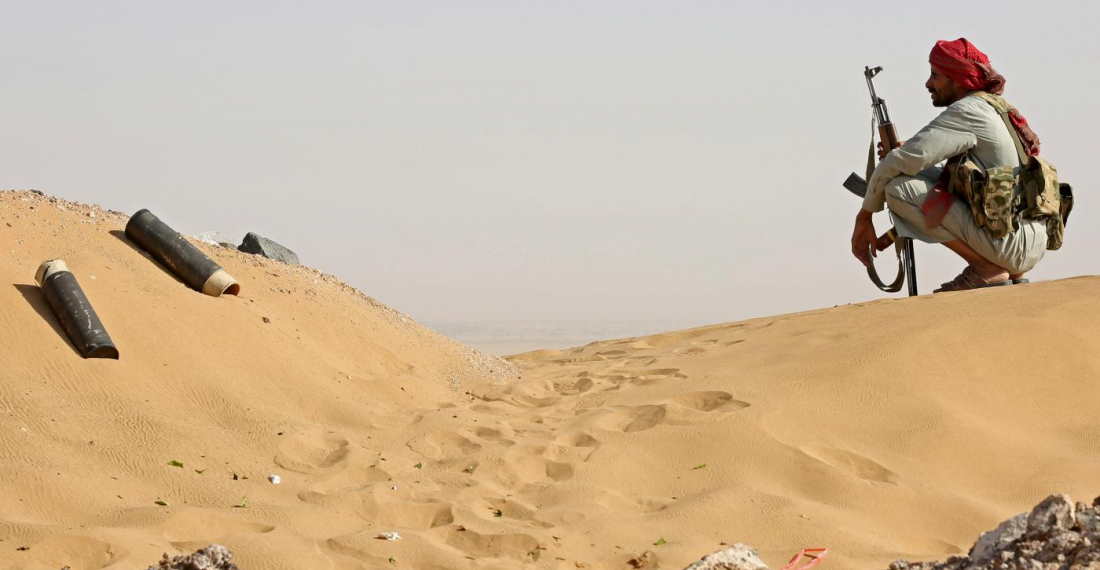Yemen's legitimate government announced the appointment of new prime minister.
The internationally recognized Presidential Leadership Council head announced that Yemen’s Foreign Minister Ahmed Awad bin Mubarak will be the new prime minister. He succeeds Maeen Abdulmalik Saeed, who was made an adviser to PLC president, Rashad Al-Alimi.
In a post on X, the new prime minister promised to focus on improving living standards for Yemenis, reviving government institutions, and putting an end to the Houthi military seizure of power in Yemen.
Bin Mubarak said:
“I assume this position today with the determination to improve the lives of every Yemeni man and woman, mindful of the suffering of our honorable people.”
Houthis continue attacks against maritime shipping in the Red Sea and Gulf of Aden
Meanwhile, Yemen’s Houthi militia on Tuesday launched another wave of missiles toward ships in the Red Sea and Gulf of Aden as the group’s leader vowed to continue attacks until Israel lifted its blockade of Gaza.
A cargo vessel sailing 57 nautical miles west of the Houthi-controlled port city of Hodeidah sustained minor damage to its bridge after one of the weapons passed through its deck, according to British maritime agencies the UK Maritime Trade Operations (UKMTO), and Ambrey.
The UKMTO reported that a small boat had been spotted off the ship’s port side.
Meanwhile, Ambrey officials said a British-owned and Barbados-flagged cargo ship had been damaged in a drone attack while navigating through the southeast Red Sea.
On Tuesday, the UKMTO warned shipping companies operating in the Gulf of Aden to exercise caution after receiving reports of an explosion near to a commercial vessel 50 nautical miles south of the Yemeni city of Aden.
And Ambrey reported that a Greek-owned and Marshall Islands-flagged vessel sailing from the US to India was targeted 53 nautical miles southwest of Aden.
The warnings were issued shortly after eyewitnesses in the Houthi-controlled Ibb province said on Tuesday that a missile had been fired from the Al-Hamza military camp in Ibb’s Al-Sabrah area.
The Iran-backed Houthis have launched dozens of explosive-rigged drones and ballistic missiles at commercial and naval ships passing through Bab El-Mandeb (the strait that connects the Red Sea with the Gulf of Aden), the Red Sea, and the Gulf of Aden in what the militia group has described as military action in support of Palestine aimed at pressuring Israel into lifting its siege of Gaza.
On Tuesday, Houthi military spokesperson Yahya Sarea claimed group responsibility for firing anti-ship missiles at the Marshall Islands-flagged bulk carrier Star Nasia, and the cargo ship Barbados Morning Tide.
He said the first ship was American and the second British and that both vessels sustained direct hits. Sarea added that the attacks were in support of Palestine and retaliation for US and UK bombardments of Yemeni areas under Houthi control.
Since Jan. 12, American and British forces have conducted dozens of attacks on bases in Sanaa, Hodeidah, Hajjah, Al-Bayda, Saada, and other sites in a bid to diminish Houthi military capabilities to fire on ships.
US and UK continue bombings of Houthi targets in Yemen
On Tuesday, Houthi media said that the US and UK had conducted three attacks in the northern province of Saada, the Houthi stronghold.
And Houthi militia leader Abdul Malik Al-Houthi claimed that the US was flying the Marshallese flag on its ships to evade strikes, adding that attacks on shipping in the Red Sea would continue.







